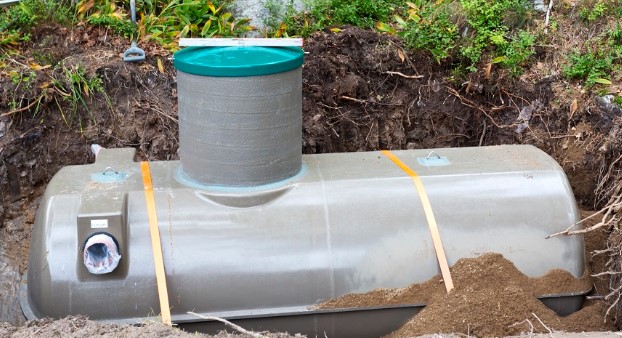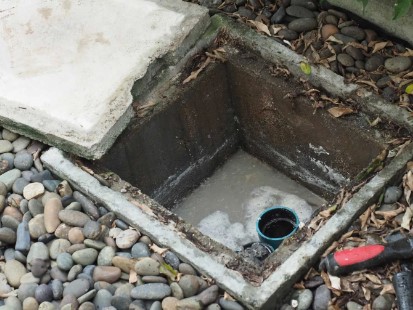The Household Sewage Treatment System Program ensures that septic systems are designed and installed under permit and follow state and local regulations.
This program helps ensure the cleanliness and safety of our drinking water.
Public Health also investigates sewage nuisance complaints and consults with homeowners on replacing their septic system.

Buying or selling a home with a septic system?
The Clark County Combined Health District conducts inspections of sewage disposal systems and private water systems, on request, for the purposes of real estate transfers and refinancing. These inspections are sometimes required by the lender or may be requested by the buyer or seller. There is no law requiring an inspection of these systems by the local health district in order to sell a house.
Sewage disposal system inspections include a sanitary survey of the system and a pumping report review. If a septic tank is present at the property, it must be pumped by a registered pumper who is approved by our office to submit pumping reports for real estate inspection purposes and a pumping report must be submitted to this Health District. If a discharging sewage system is present at the property, it must be pumped by a registered pumper and serviced by a service provider approved to submit reports for real estate inspection purposes. Please note that pumping and servicing must be performed after the Health District has completed the inspection and must be arranged and paid for by the buyer or seller.
Septic pumpers and Service Providers for Real Estate Inspections
Aerator systems, which handle sewage and release the cleaned water into streams, ditches, and storm sewers, are important. If we don’t take care of them properly, they can break down and release untreated sewage. This can seriously harm public health and the environment.
The Clark County Combined Health District registers sewage system installers, septage haulers/pumpers and service providers.
For the convenience of system installers and pumpers, the most current registration forms may be obtained by clicking the appropriate link, below.
- 2025 Installer registration form
- 2025 Septage hauler registration form
- 2025 Service Provider registration form
- Lot Split Application
If you have any questions or concerns, please call our office at (937) 717-2451 Option 3

Changing or replacing your septic system?
Guidance Documents
CCCHD does site approvals upon request of local zoning officials to determine whether proposed projects (pole barn, pool or room addition, etc.) may impact on-site sewage systems and private water systems.
The Ohio Administrative Code requires a ten-foot isolation distance from projects to both private water systems and on-site sewage systems. This ensures that these systems remain accessible for maintenance and repairs and that they are not disturbed by project activities.
All properties with on-site sewage systems must maintain sufficient area for replacement of the sewage system. A construction project may be disapproved if it interferes with the available area for replacement of the sewage system.
If you need a site approval, please fill out the Site Approval Application and attach a sketch (Example sketches) of your proposed additions. The sketch need not be to scale but must give sufficient detail and/or measurements that the exact location can be determined in the field.
Applications may be submitted in person at the Clark County Combined Health District and the fee is $50.00
Commonly requested isolation distances
*This list is not inclusive
Buildings and hardscape must be installed a minimum of 10 feet from any portion of your household sewage treatment system. Certain types of projects may require a greater distance, please contact our office (937-717-2451, option 3) with specifics regarding your improvements if it is a project like a pond or geothermal system.
Your private water well must remain:
- A minimum of 5 feet from the edge of any private driveway, parking area, deck, patio, or other non-walled improvement to your lot.
- A minimum of 10 feet from any building
- A minimum of 50 feet from any boreholes or horizontal excavations for geothermal use.
- A minimum of 25 feet from the edge of any proposed pond construction
- A minimum of 20 feet from any household type propane supply tank(s)
- A minimum of 50 feet from any household type fuel oil supply tank(s)
